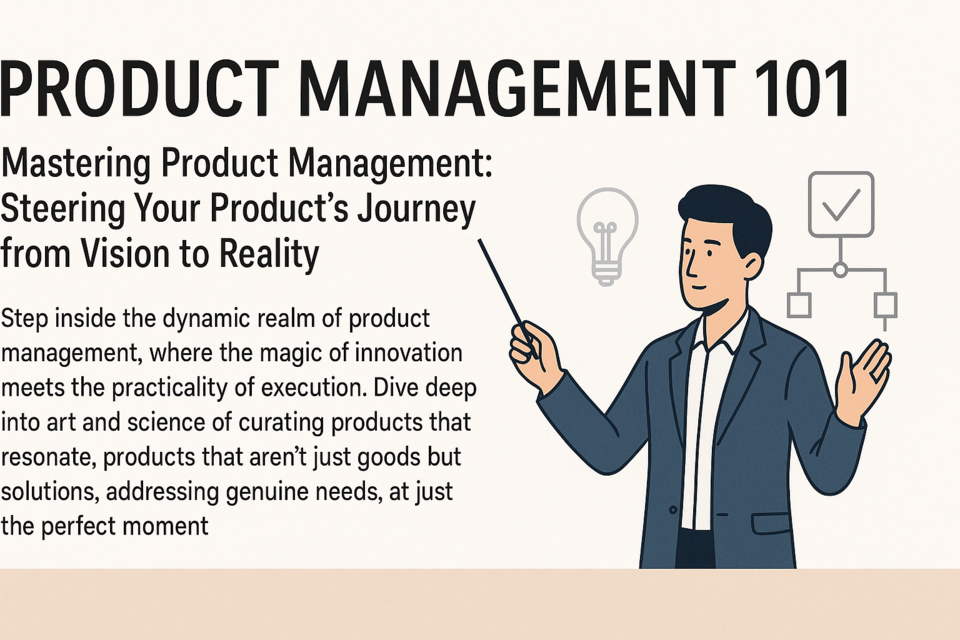In addition, mastering communication skills means understanding different styles of communication, engaging active listening skills, and mastering quality delivery services over the phone.
Styles of Communication
You may think there's only one style of communication - after all, one person talks and another person listens. However, it's not quite that simple. When it comes to customer service and call center training, it's important to understand there are different communication types.
An aggressive communicator is not pleasant to deal with. Communication with such an individual is likely to be combative and "black and white." This type of person will have a specific complaint, or initiate an either/or attitude when it comes to resolving such an issue. Aggressive communicators often dominate communication efforts, ignore the other speaker and their comments or suggestions, or interrupt constantly.
A passive communicator is the opposite of an aggressive communicator. This type of communicator tends to go along with, or agree with, everything another person says. In many cases, an extremely passive communicator is unable to form an opinion on their own. Passive communicators do their best to avoid disagreeing with pressing or serious issues brought up by someone else. A passive communicator typically allows the other person to control conversation, issues, and choices. Such an individual isn't ideally suited to be either a customer service representative or call center agent, because such individuals cannot be firm enough in providing solutions, compromises, or even negotiations with the customer.
Another type of communicator is classified as assertive. An assertive communicator is somewhere in the middle between passive and aggressive. An assertive communicator has the ability to listen to someone else's problem or issue and offer solutions or negotiations to form a compromise or resolution to the problem. However, even though they're polite and courteous, they won't allow themselves to be walked all over. They respect others and themselves, their abilities, and their capabilities. The most ideal type of communicator in a call center or telephone service position is the assertive communicator.
Are You Listening?
One of the main jobs of a customer service representative, and most especially a call center agent, is to listen to what a customer is saying. It's not enough to hear what a customer is saying, but to listen to their words, their meaning, and their tone of voice.
Customer-focused listening skills are essential for customer service representatives who do well in the business, as well as for the company they work for. It's important to train customer service representatives and call center agents who work the telephones to realize that a customer has a variety of needs when it comes to services. They may not only need physical support, but mental or emotional support, as well. A customer wants to feel as if they're important to the company you represent.
Any individual working in a hospitality or customer service-based field or industry should learn that there are three recognized "levels" of listening, and many of us are not even aware of it. So, what kind of listener are you? Do you listen to people differently if you've had a bad day at home, you're worried about taking your dog to the vet after work, or your boss is being a jerk?
Listening levels and skills rate between effective and least effective. The term active listening is defined as listening with everything you have, and not just to the sounds coming from the other end of the phone. Active listening means that you have to put your own attitude, worries, and concerns away and focus solely on listening to what the other person is saying.
Level 3 listening is the least effective form of listening. This level personifies someone who has literally zoned out, or daydreams while someone else is talking. They pretend to pay attention, and form standard noncommittal replies or body gestures, but they're not really listening to what someone else is saying. They're more interested in what they have to say. This poor level of listening skill can have a very detrimental effect on customer service, decision-making, and resolutions with customers.
Level 2 listening involves a person who is paying attention to what somebody else is saying, but doesn't necessarily understand what they're trying to say. Such a listener will understand the actual spoken words, but neglects the importance of tone of voice. If face-to-face, this type of listener neglects to watch body language, facial expressions, and so forth. Such a listener often misinterprets or misunderstands what a caller needs or wants, and ends up performing incorrect actions, or offering solutions that don't solve the problem.
The most effective listening level is rated Level 1 listening. This level defines someone who actively pays attention and focuses solely on a speaker. This type of listener puts everything together: tone, vocabulary, listening, and body language. This type of listener utilizes information to form a judgment or a solution, without being influenced by their own attitudes or distractions.
The best listener is someone who takes the time to hear a message, ask relevant questions, and then evaluates what has been said. This approach promotes positive solutions, understanding, and respect for the speaker.
As a call center agent, it's important to master a variety of communications skills. These skills not only include understanding communication styles, but also listening styles. In addition, it's important for you to master optimal quality and delivery of services over a telephone line. You can do this by:
- Asking appropriate questions - By asking questions, you'll gain the information that you need to offer a solution.
- Coming up with an answer - Before answering questions, make sure you know the answer. Make sure you understand the question being asked. Again, if you don't know the answer, tell the caller that you don't know, but will find someone who does.
- Choose adequate vocabulary to communicate - Call center agents and customer service representatives are encouraged to avoid use of negative language. Negative language and words include words such as impossible, can't, not, and no. Positive words include can, able, and yes.
Whether the customer can see you or not, always strive to offer the best in quality delivery services over the phone. Courtesy counts. You'll find, even when dealing with difficult or irate customers, that the calmer and more soothing your voice, the faster the individual will calm down. Literally, take the wind out of their sails by maintaining your patience. Don't let them ruffle your feathers -- rather, do your best to let them know that you're hearing, listening, and understanding their complaint.
Conclusion
Active listening, the right communication style, and showing common courtesy goes a long way toward proving to customers that you do care, and the company does care about them. Effective listening skills and excellent communication skills can literally mean the difference between success and failure of the business for whom you work.
How, exactly, do you provide excellence in phone service? By following communication basics, utilizing an assertive communication style, and through active listening, you have the ability to provide excellent, quality services for customers. Your attitude makes a big difference in how you respond to a customer. In this article, we'll explore differences in attitude, and how such concepts can help you answer questions quickly, effectively, and correctly.
Attitude Makes a Difference
We've already briefly touched on how you answer a telephone. We suggested using welcoming words and treating each call as if it's the most important call you've received all day. Your ability to maintain a personable, friendly, enthusiastic -- yet knowledgeable -- tone goes a long way toward providing excellent phone service to customers.
Your attitude and ability to listen and offer solutions is the foundation of your job. Remember that it pays to be flexible, while still maintaining the policies and regulations of the company for whom you work. An important thing to remember it that a customer calls for solutions, not to be told what you can't do, or you're not allowed to do. While staying inside your company's guidelines, it's important to look for any kind of solution that will help the customer. Bottom line: It's your job to attempt to resolve all issues with that first call contact.
Your tone and attitude definitely make a difference to the person on the other end of the phone. By avoiding negative and controlling words, such as, "You should have," or, "I'm sorry, but," or even, "You have to," you will more than likely avoid a negative reaction from the caller. Patronizing phrases, outright refusal ("I'm not allowed to offer...) to do something about an issue, and inflexibility are likely to cause callers to grow even more dissatisfied with a product or service.
It's important for you, as a call center agent, to always be courteous, regardless of the attitude or behavior of the person at the other end of the line. While maintaining company policy, it's also important to let the listener know that you understand their concerns or problem. Each and every caller deserves courtesy and respect.
If you're having a bad day, or you have received nothing but complaints from customers all day, it's still important to keep your cool. Your frustration, annoyance, or irritability can be perceived through your tone of voice and attitude when dealing with the customer.
Pretend you're nearing the end of a long, eight-hour shift. You've received several difficult calls in the past few hours, with irritable and unreasonable callers. You're watching the clock, waiting for your shift to end, when you receive one last call, four minutes before quitting time. You can tell by the sound of her voice that the caller is an older woman. "Just great," you think.You respond to her with a sharp tone of voice, your weariness, annoyance, and frustration from the day oozing in your voice.
The woman explains her problem. She's having a technical issue with a piece of equipment she purchased, but you don't understand what she's trying to explain. Again, your tone conveys a sense of impatience as you ask her to repeat the issue. The woman at the other end of the line senses your attitude and grows even more frustrated, and then demands to speak to your manager or supervisor.
Ask yourself this: Does this older woman know what kind of day you had? Is it her fault that you're tired and irritable? The answer to both questions is no. It's your job to maintain a professional, calm, and courteous demeanor and attitude for each and every call, whether it's your first call at eight o'clock in the morning or your last call at two o'clock in the morning.
Your attitude can - and does - make a difference with each and every customer to whom you speak.
Learning how to listen and effectively answer questions is another main responsibility of call center agents. In order to answer customer questions, you have to understand the problem. The expectations of the customer should always be understood before you attempt a solution or answer a question.
Of course, adequate training for call center agents is essential, but it's your responsibility is to know everything you can about the business, product, or service you represent. Make an effort to research, and even use, such products and services. Many business owners do take the time and trouble to provide meetings and in-services so that call center agents are completely familiar with every aspect of their business.
In addition, it's very important for business owners and managers to empower call center agents to make decisions that fall within corporate guidelines, but that aren't written in stone. In many business environments, it's important for employees, customer service representatives, and call center agents to avoid ever having to tell a customer "no." After all, if the customer walks away dissatisfied, the company loses future business.
It's often difficult to encourage managers and bosses to empower call center agents with the authority to make decisions, and even to "bend the rules" once in a while, based on situation or scenario.
In order to answer questions by customers, it's important to know exactly what you can deliver in regard to actions or solutions for customers. You need to know what you can or can't provide the customer, which means you also need to understand your company's mission, vision, and guidelines.
Make sure you understand both formal and informal rules. In many business environments, "formal" rules are those that absolutely cannot be broken. Such rules often revolve around safety issues and company standards. Informal rules are put in place to offer general guidelines to employees, customer service representatives and call service agents, but this area it does allow for a bit of bending now and then. Understand which rules you can "bend" (with permission from management) to serve your customers.
Remember that before you answer any question; make sure you understand what the customer is asking you. If you don't know the answer, say so.
Conclusion
Your ability to respond to customers, regardless of their issues, is the mark of an excellent call center agent. Your attention to detail, your sense of reliability, and your ability to respond are basic characteristics that allow you to get your job done, and done well. Make sure you understand your company's standards and policies so that you know exactly what you're expected to do with a variety of customer issues. Learn the boundaries of what you can, and absolutely cannot, offer them in an attempt to appease ruffled feathers, dissatisfaction regarding a product or service, or other types of complaints.
























